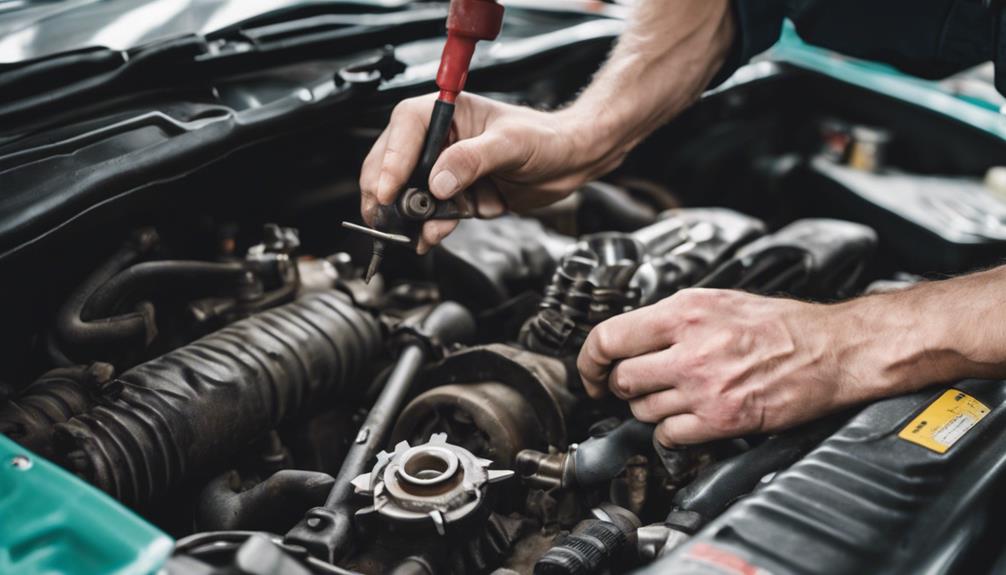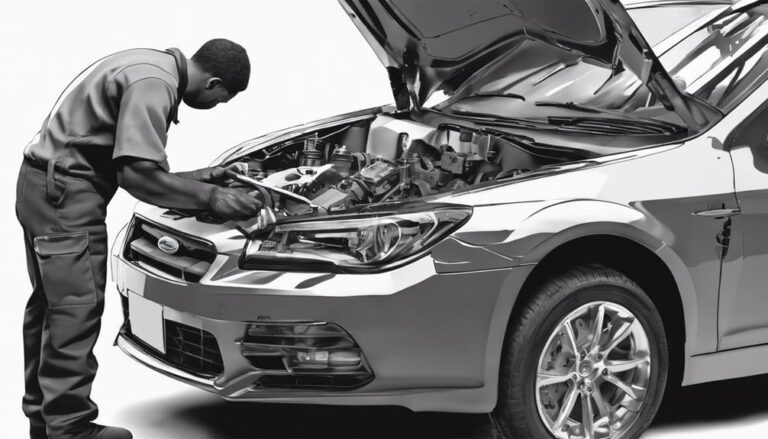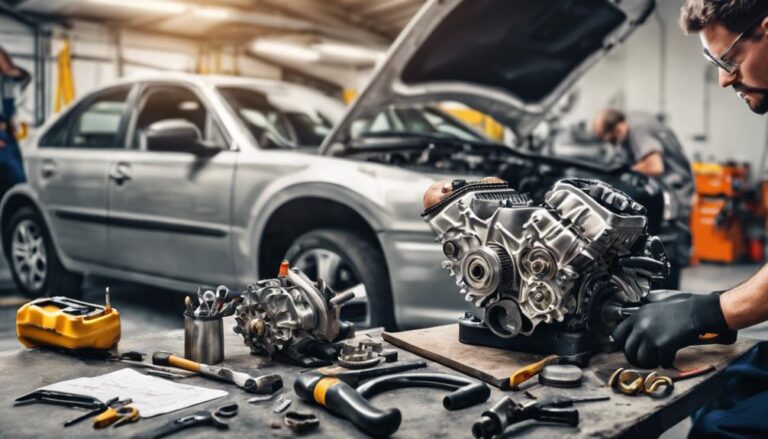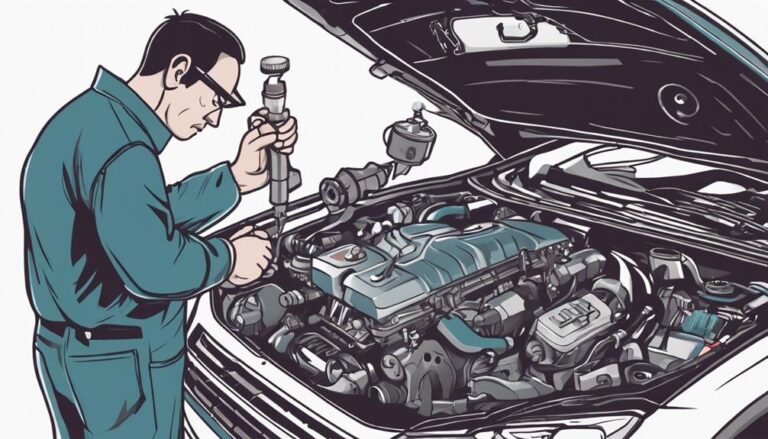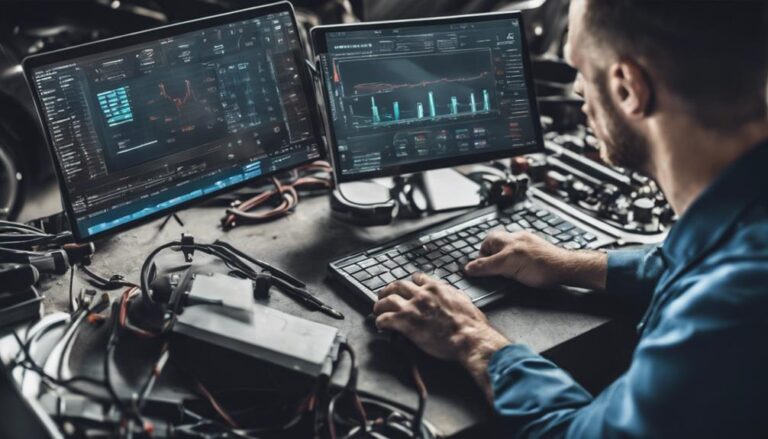Maximizing Engine Lifespan: Regular Maintenance Guide
Imagine your engine as a well-oiled machine, purring smoothly as it effortlessly propels you forward. But what if this image is disrupted by sudden sputters or unexpected breakdowns?
To ensure your engine's longevity, a regular maintenance guide is imperative. From understanding the significance of timely oil changes to mastering the art of gentle driving, each step contributes to the health and efficiency of your engine.
Dive into the world of engine care, where small actions can make a significant difference in the lifespan of your vehicle's powerhouse.
Key Takeaways
- Adhering to manufacturer's maintenance schedule prevents premature wear and ensures optimal engine performance.
- Regular diagnostic tests catch issues early, promoting engine longevity and reliable operation.
- Proactive repair and maintenance practices prevent major engine problems, extending lifespan.
- Prioritizing regular maintenance tasks like oil changes and filter replacements enhances fuel efficiency and prolongs engine life.
Importance of Regular Engine Maintenance
Regular engine maintenance plays a crucial role in ensuring the longevity and optimal performance of your vehicle's engine. By adhering to the manufacturer's maintenance schedule, you can benefit from improved engine performance and longevity. Preventing the build-up of contaminants through regular oil changes and filter replacements ensures optimal lubrication, reducing wear and tear on engine components. This maintenance routine significantly extends the engine's lifespan and helps avoid costly repairs down the road.
Checking tire pressure, battery health, and fluid levels regularly is essential for identifying potential issues early on. This proactive approach not only preserves the engine's health but also contributes to overall vehicle efficiency. Additionally, using high-quality fuel and lubricants minimizes friction, reduces deposit formation, and promotes a longer-lasting engine. Timely repairs and inspections are crucial in preventing minor issues from escalating, ultimately safeguarding engine longevity and maximizing performance. Invest in regular maintenance to reap the full benefits of a well-maintained engine.
Engine Diagnostics for Longevity
To ensure the longevity and optimal performance of your vehicle's engine, understanding and utilizing engine diagnostics is crucial for identifying potential issues early on and maintaining engine health.
When it comes to engine diagnostics, there are key benefits and practices that can help you achieve a well-maintained engine:
- Diagnostic Benefits: Engine diagnostics involve specialized tools that assess the health and performance of your engine. By conducting regular diagnostic tests, you can identify issues early, preventing major problems in the future.
- Longevity Assurance: Diagnostic tests play a vital role in assuring the longevity of your engine. These tests can reveal issues with various components, sensors, and overall functionality, allowing you to address them promptly.
- Diagnostic Tests: Common diagnostic tools like OBD-II scanners provide specific codes indicating engine issues. Utilizing these tools for routine diagnostics can help maintain optimal engine performance and extend its lifespan significantly.
Regular engine diagnostics are a proactive approach to engine maintenance, ensuring your vehicle runs smoothly for years to come.
Essential Repair Practices for Engines
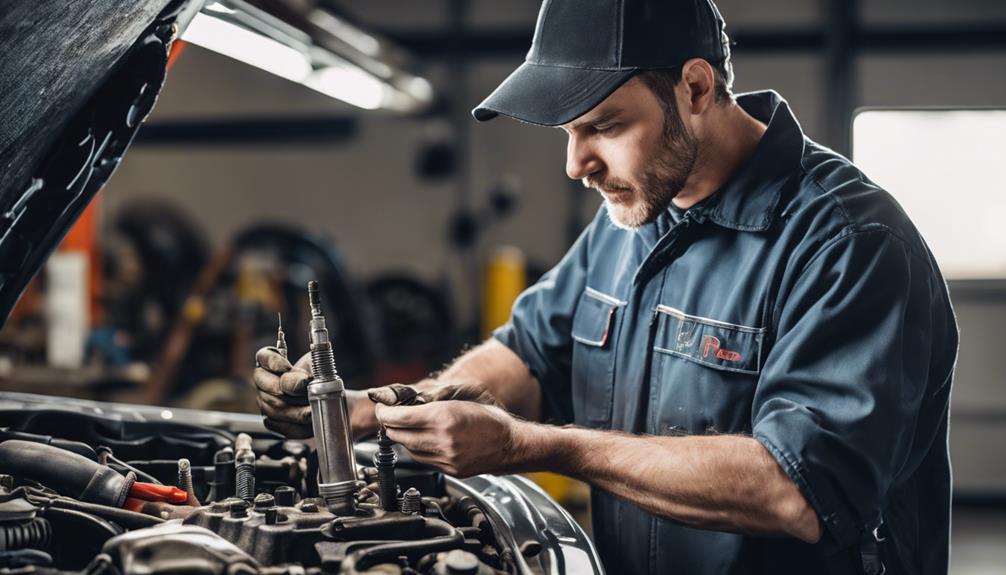
Implementing essential repair practices is paramount for maintaining the longevity and optimal functioning of your vehicle's engine. Two critical procedures to ensure your engine's health are belt inspection and hose replacement. Regularly inspecting belts for signs of wear, such as fraying or cracks, can prevent unexpected failures that may lead to costly repairs. Similarly, replacing hoses that show signs of deterioration, such as bulges or soft spots, is crucial to prevent coolant leaks and overheating issues. By staying proactive with these maintenance tasks, you can avoid major engine problems and keep your vehicle running smoothly.
| Essential Repair Practices | Description |
|---|---|
| Belt Inspection | Regularly check for wear and tear. |
| Hose Replacement | Replace deteriorating hoses promptly. |
Maximizing Engine Efficiency Through Maintenance
For optimal engine efficiency through maintenance, it's crucial to prioritize regular oil changes every 5,000 to 7,500 miles. This simple yet vital task ensures the engine stays lubricated, reducing friction and wear, ultimately improving fuel economy.
Key Steps for Maximizing Engine Efficiency:
- Cooling System Maintenance: Regularly checking coolant levels and flushing the system prevents overheating, which can negatively impact fuel efficiency.
- Spark Plug Replacement: Timely changes as recommended by the manufacturer maintain proper combustion, contributing to better fuel economy.
- Air Filter Inspection: Regularly checking and replacing air filters prevents dirt and debris from entering the engine, enhancing fuel efficiency by ensuring a clean air-fuel mixture.
Prolonging Engine Lifespan With Care
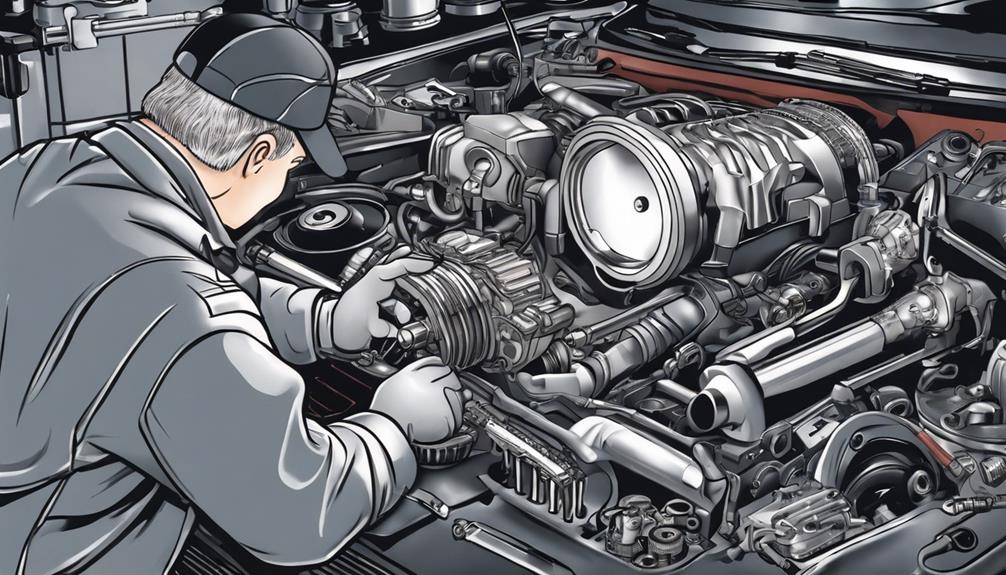
With meticulous care and timely maintenance practices, you can significantly extend the lifespan of your engine, ensuring optimal performance and reliability. To maximize engine longevity, consider the following maintenance tips:
| Maintenance Tip | Description |
|---|---|
| Regular Oil Changes and Filter Replacements | Prevents contaminants buildup and ensures proper lubrication for engine components. |
| Follow Manufacturer's Maintenance Schedule | Helps maintain optimal performance by preventing overheating and excessive wear from lack of lubrication. |
| Proper Cooling System Maintenance and Coolant | Ensures proper temperature management, preventing overheating which can lead to engine damage. |
| Gentle Driving Habits | Smooth acceleration and steady driving reduce engine strain, improving fuel efficiency and longevity. |
| Use High-Quality Fuel and Lubricants | Minimizes friction, reduces deposits, and promotes engine longevity by maintaining internal components cleaner. |
Frequently Asked Questions
How Can I Maximize My Engine Life?
To maximize your engine life, ensure regular oil changes, follow maintenance schedules for coolant flushes, change spark plugs timely, replace dirty air filters, and promptly address damaged belts and hoses. These steps increase efficiency and prevent breakdowns.
How Long Can an Engine Last With Proper Maintenance?
To maximize engine life through proper maintenance, you can significantly prolong durability and ensure optimal performance. By following recommended schedules, like regular oil changes and filter replacements, engines can last well beyond 200,000 miles.
How Can I Make My Car Last 300 000 Miles?
To make your car last 300,000 miles, adopt longevity secrets like following maintenance schedules, managing temperatures, gentle driving, and using top-notch fuel/lubricants. These practices ensure optimal engine health, performance, and milestone mileage achievements.
What Are the Essential Maintenance Tasks for the Engine?
Ensure engine oil changes every 5,000 to 7,500 miles. Replace spark plugs as recommended. Regular maintenance is key for optimal engine health. Ignoring these tasks can lead to poor performance and potential breakdowns.
Conclusion
So, to sum it up, ensuring the proper care and maintenance of your engine is essential for maximizing its lifespan.
By staying proactive with regular maintenance tasks, diagnosing issues early, and implementing necessary repairs, you can keep your engine running smoothly for years to come.
Remember, a well-maintained engine is like a fine-tuned machine, ready to take you on countless journeys without skipping a beat.

